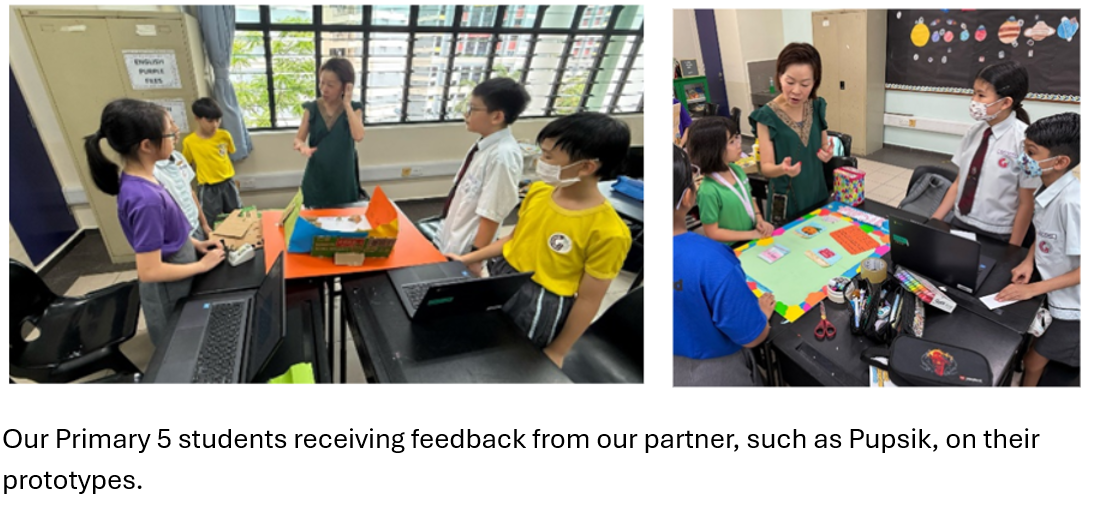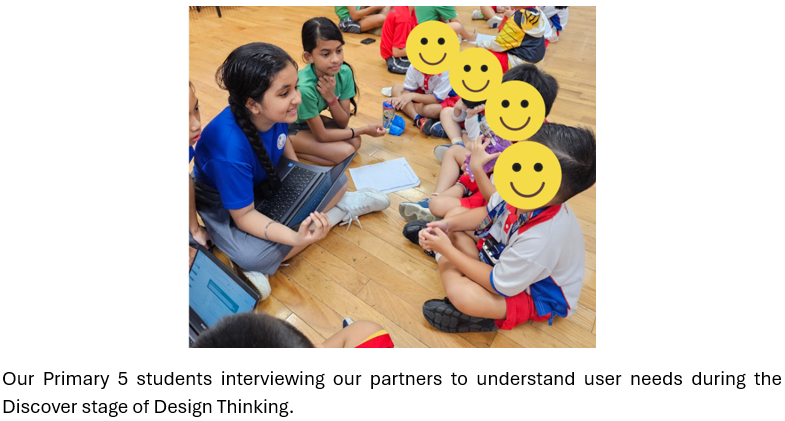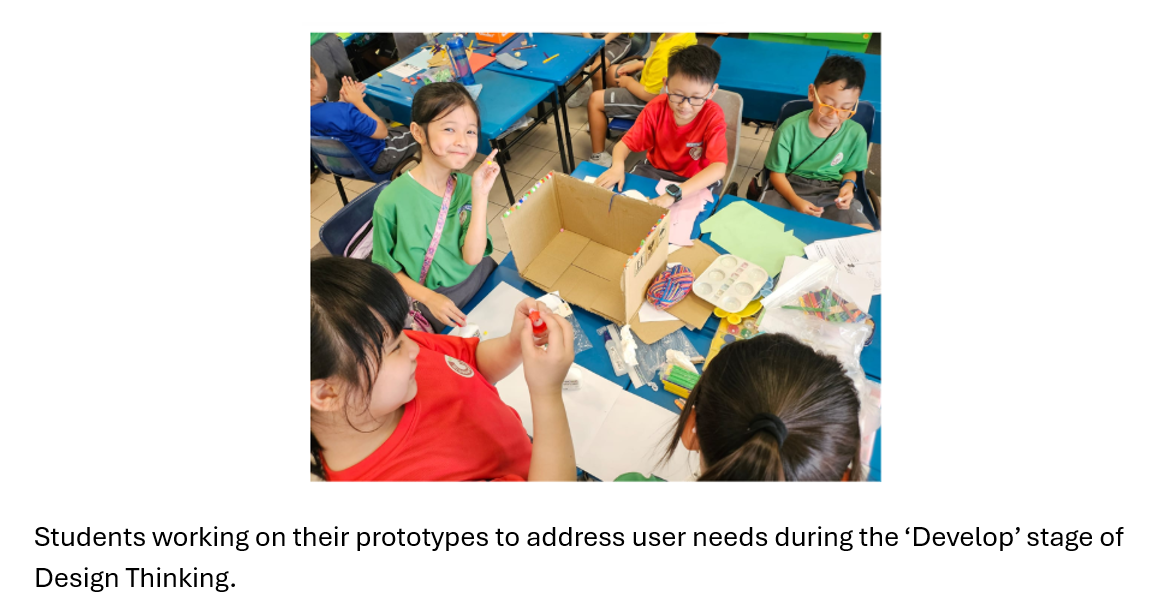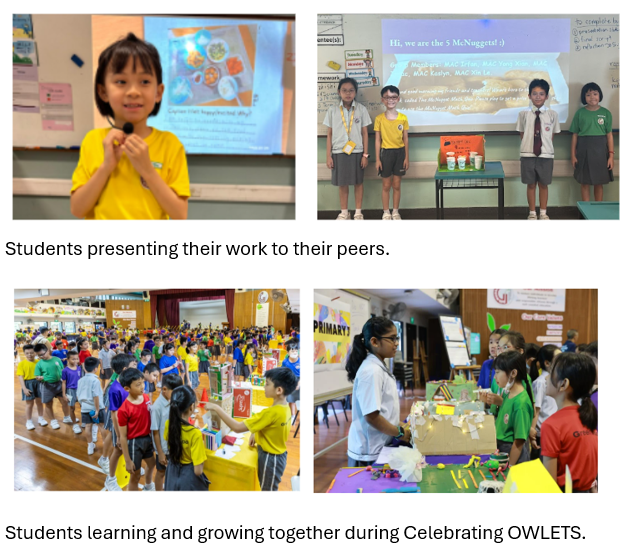LLP WHIZZ
Learning for Life Programme (LLP)
WHIZZ – We are THinking, Inventive and Zealous KIdZ who serve the community.

Rationale:
Globalisation, changing demographics and technological advancements are some of the key driving forces in a fast-changing world. To enable our students to face the challenges and capitalise on the opportunities of the future, the school has developed a value-based curriculum undergirded by design thinking principles which develops students’ critical, adaptive and inventive thinking where they apply various thinking skills and systems to derive alternative solutions and perspectives and relate to real-life problems.
Philosophy:
We believe that the critical and inventive thinking skills that one acquires when he/she is young will ultimately determine his/her level of success in the future. Thinking habits and systems such as Appreciative Inquiry (AI), Systems Thinking, Four Player Model, and Design Thinking promote critical and inventive thinking. These systems require students to have an intentional process to derive new, relevant solutions that would create positive impact. As the customised curriculum is values-based, it would develop our students with some core values and give them the moral compass to be rooted to Singapore. We believe that early exposure to thinking dispositions and values-based inquiry would groom our students to be lifelong learners and prepare them for greater goals in their lives to serve the future of Singapore.
Outcomes:
Students are
-
Able to apply the following thinking skills/systems/processes: Appreciative Inquiry (AI), Systems Thinking, Four Player Model, and Design Thinking
-
Able to demonstrate Critical, Adaptive and Inventive Thinking
-
Able to demonstrate awareness of the global issues related to Singapore and other countries
-
Able to generate ideas and explore different pathways to an issue/challenge
-
Able to accept different perspectives, solutions and / or methods, even in the face of uncertainty
-
Able to use evidence to explain his/her reasoning and decisions
-
Able to demonstrate awareness of the importance of participating in school and community activities/programmes and actively participates in them
-
Wise, empathetic, gracious, resilient, responsible, and open-minded
Implementation:
CCE in the Woods (CIW)
CIW is our school-based values-curriculum developed to educate students
on values and self-leadership skills with the 7 Habits of Highly Effective
People as a foundation. The CIW package consists of activity sheets, buzz
time and students’ reflection on our school values and the 7 habits.
Through the use Appreciative Inquiry (AI), the Four Player Model and Systems Thinking (Upper Primary), teachers engage students in critical thinking and guide them in developing their own moral compass. This is critical in developing our students into Critical Thinkers and Leaders of Character.
Additionally, students will self-assess on their progress in demonstrating our school values using the CIW Reflection. Thereafter, teachers will provide their input and feedback to support our students’ character development.
Project Work (PW)
At Greenwood Primary School, Project Work (PW) is a cornerstone
of our WHIZZ Programme and a key driver in cultivating critical thinkers
and leaders of character. The school collaborated with Republic Polytechnic
in 2024 to review and enhance the PW curriculum. Anchored in Design Thinking
and aligned with MOE’s Emerging 21st Century Competencies (E21CC), our
PW curriculum engages students in authentic, real-world challenges — preparing
them to be Curious, Confident, and Collaborative problem solvers in a dynamic
global landscape.
Key Components of PW @ Greenwood:
-
Curriculum based on Design Thinking Principles:
-
The school’s PW curriculum is designed around the principles of design thinking. Students learn to approach problems creatively, empathise with others, and develop solutions collaboratively.
-
Our Project Work uses the Design Thinking process, guiding students through:

-
-
3Cs Competencies Framework
-
The 3Cs Competencies — Curiosity, Confidence, and Collaboration —are aligned with the Ministry of Education’s E21CC, that Greenwood nurtures in all students to prepare for an ever-evolving world.

-
-
Values in Action (VIA) Integration
-
Students can apply the Design Thinking framework to understand community needs and modify the PW projects to engage community partners such as preschools and active ageing centres to contribute meaningfully.
-
These projects focus on three areas: Awareness, Action, and Advocacy, empowering students to acquire civic literacy and contribute meaningfully.

-
-
Student Involvement:
-
Primary 1 and 2 students use food journaling to document family memories. In 2024, we contributed to the national archival collection, Singapore Makan, in collaboration with the National Library Board Contemporary Collecting
-
Primary 3 students design games or toys for family members and friends to teach a concept through a fun way.
-
Primary 4 students raise awareness among seniors and preschool students in our neighborhood about how they can contribute to making Singapore a Zero Waste Nation.
-
Primary 5 students work on an entrepreneurship-themed project where they identify problems faced by real stakeholders, such as local brand Pupsik and school canteen vendors, and design innovative solutions. They interviewed the stakeholders to better understand their needs, and eventually created prototypes like informative marketing campaigns, creative packaging, or interactive tools to support them by boosting sales or overcoming their challenges.
-
-
Celebrating OWLETS - Project Showcase
-
Students proudly showcase their completed projects to peers, teachers, and the community.
-
Through this platform, students demonstrate their creativity, problem-solving skills, and teamwork. We celebrate students’ growth, innovation, and the power of collaborative learning
-
Overview of Project Work @ Greenwood Primary School


Greenwood Primary School’s WHIZZ programme exemplifies its commitment to nurturing Critical Thinkers and Leaders of Character who actively contribute to their community. Through Project Work and CIW, students learn about design thinking and apply that to real-life projects. Hence, they develop students with 21st-century competencies to make a positive impact. The positive contributions our students make will help them become Critical Thinkers and Leaders of Character, forming a future-ready generation that will contribute significantly to society.



.png)

